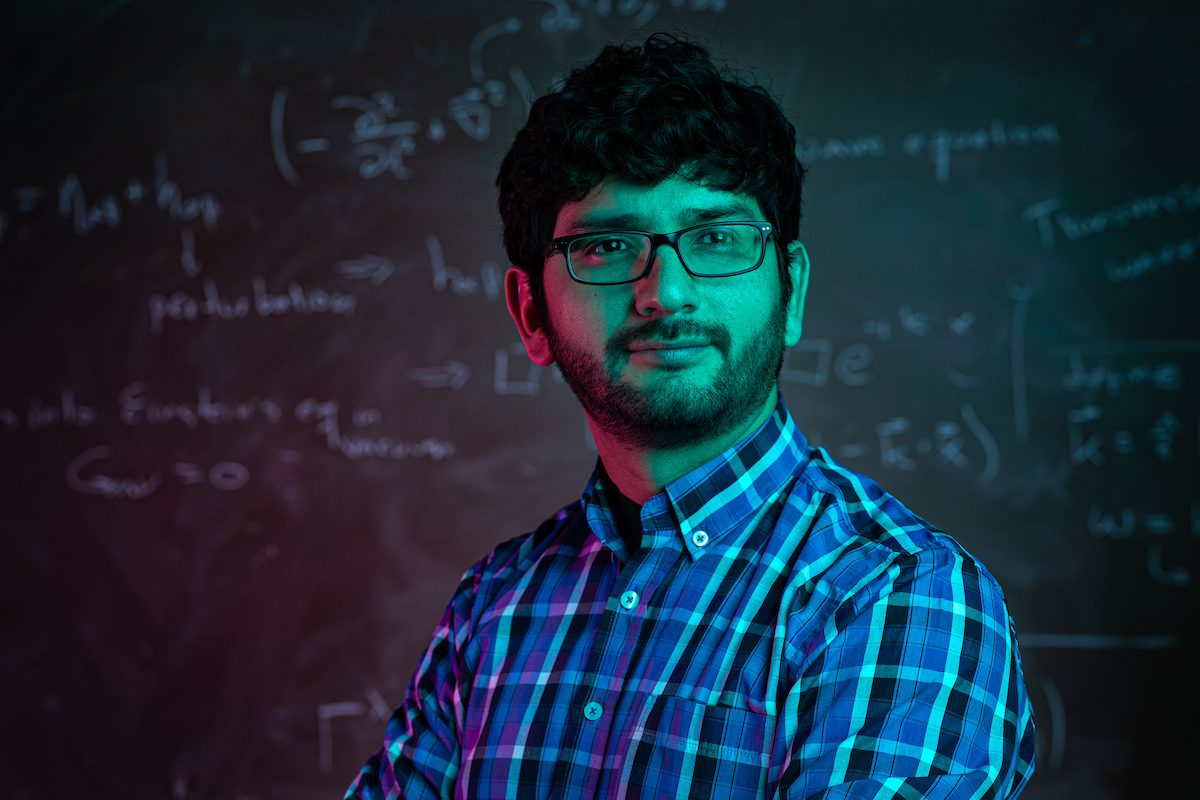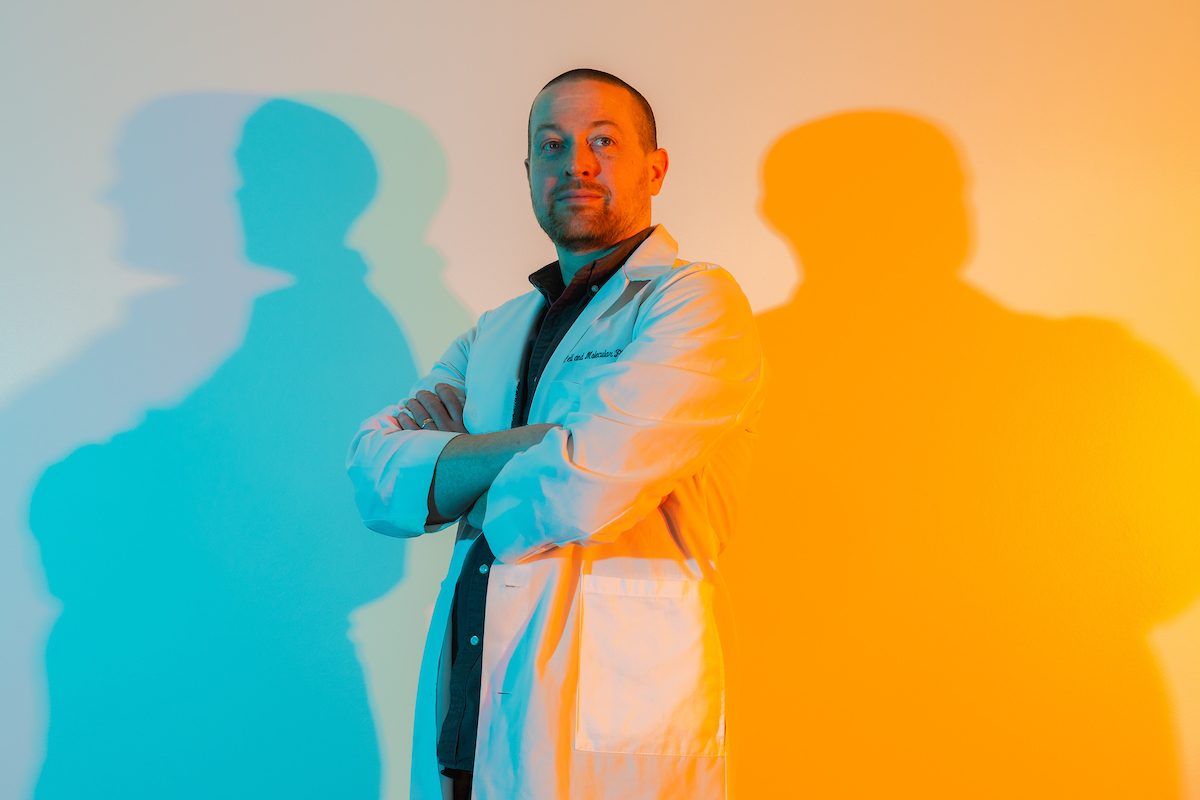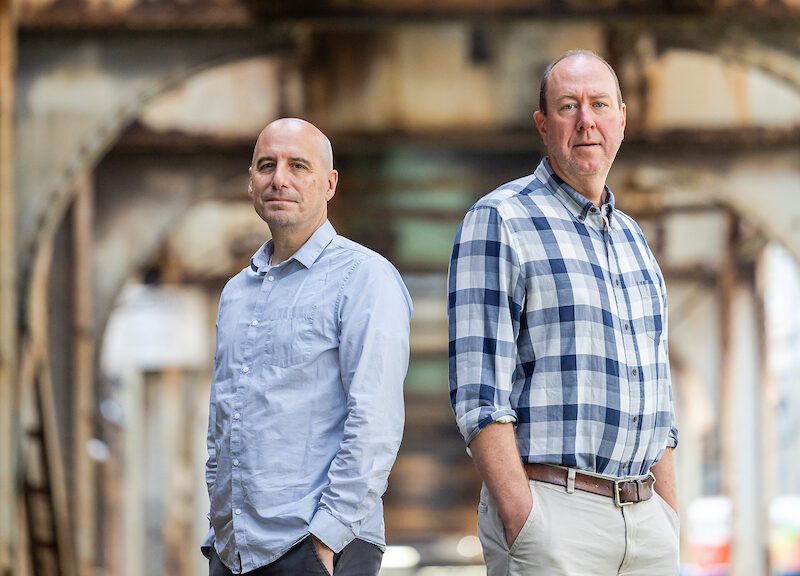Loyola physics professor is shedding light on dark matter

According to contemporary astrophysics, the secrets to our vast and mystifying universe are written in the stars. Walter Tangarife, assistant professor in the Department of Physics in the College of Arts and Sciences, believes those answers are shrouded in an especially dark cloud of mystery.
“I study theoretical models in which dark matter—which makes up 27 percent of the universe—interact directly with neutrinos, which are very light particles that interact very feebly with atoms,” says Tangarife.
Tangarife’s journey to shed light on the study of dark matter brought him to a unique pit stop in his trip through the universe: the Kavli Institute for Theoretical Physics (KITP) at the University of California Santa Barbara.
“KITP is one of the leading centers for research in theoretical physics in the U.S.,” explains Tangarife. “The institute organizes workshops throughout the year and brings scholars from all over the world to share their work and generate new ideas.”
Tangarife was a hand-selected participant for the KITP Scholars program, which supports visiting scholars in physics, who are faculty members at teaching-intensive U.S. higher education institutions with active, ongoing research. Eight researchers were selected for the program in 2020, which awarded Tangarife with three round-trip visits to KITP for up to six weeks through 2023 for what UC Santa Barbara calls a “seaside physics resort.”
Tangarife leveraged the program to help bolster his personal research project, which is currently supported by the National Science Foundation with a three-year $90,000 grant to continue his dark matter research through 2023.
What drew Tangarife to explore this specific, dark corner of the universe?
“These two types of particles—dark matter and neutrinos—are at the center of the most intriguing mysteries in particle physics. We don’t really know what dark matter is—we don’t know its mass or what kind of particle it even is—and we don’t know the origin of neutrino masses.”
“Dr. Tangarife is an exceptional asset to the Department of Physics, both as a scholar and a professor,” says Peter J. Schraeder, Dean of the College of Arts and Sciences at Loyola University Chicago. “His participation in the renowned KITP Scholars program and contributions to the field of physics serve as a stellar example of the College of Arts and Sciences’ commitment to fostering opportunities for collaboration and innovative research.”


